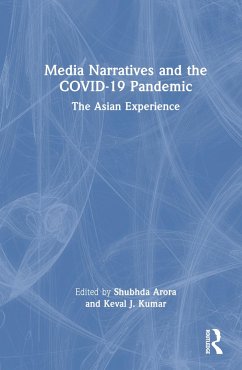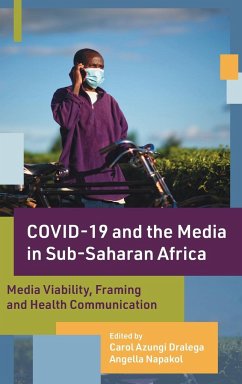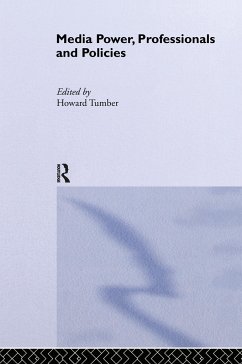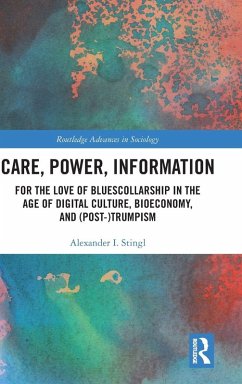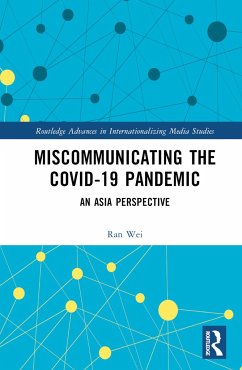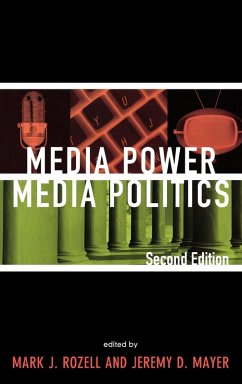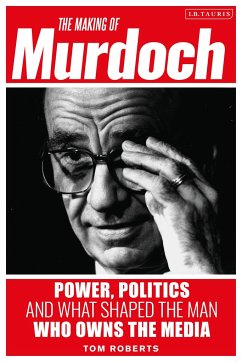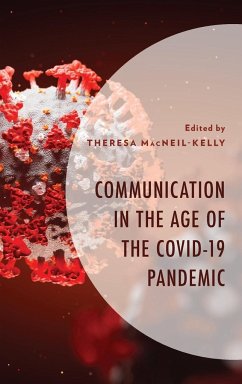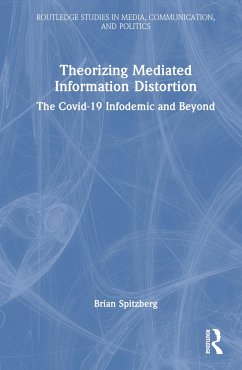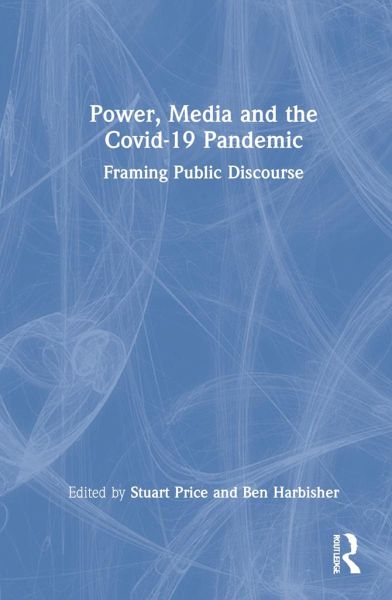
Power, Media and the Covid-19 Pandemic
Framing Public Discourse
Herausgeber: Price, Stuart; Harbisher, Ben
Versandkostenfrei!
Versandfertig in 1-2 Wochen
168,99 €
inkl. MwSt.

PAYBACK Punkte
84 °P sammeln!
This edited collection provides an in-depth, interdisciplinary critique of the acts of public communication disseminated during a major global crisis. Encompassing contributions from academics working in the fields of politics, environmentalism, citizens' rights, state theory, cultural studies, journalism, and discourse/rhetoric, the book offers an original insight into the relationship between the various social forces that contributed to the 'Covid narrative'. The subjects analysed here include: the performance of the 'mainstream' media, the quality of political 'messaging' and argumentation...
This edited collection provides an in-depth, interdisciplinary critique of the acts of public communication disseminated during a major global crisis. Encompassing contributions from academics working in the fields of politics, environmentalism, citizens' rights, state theory, cultural studies, journalism, and discourse/rhetoric, the book offers an original insight into the relationship between the various social forces that contributed to the 'Covid narrative'. The subjects analysed here include: the performance of the 'mainstream' media, the quality of political 'messaging' and argumentation, the securitised state and racism in Brazil, the growth of 'catastrophic management' in UK universities, emergent journalistic practices in South Africa, homelessness and punitive dispossession, the pandemic and the history of eugenics, and the Chinese media's attempt to disguise discriminatory practices. This is one of the first comparative studies of the various rationales offered for state/corporate intervention in public life. Delving beneath established political tropes and state rhetoric, it identifies the power relations exposed by an event that was described as unprecedented and unique, but was in fact comparable to other major global disruptions. As governments insisted on distinguishing their own propaganda from unregulated disinformation, their increasingly sceptical 'publics' pursued their own idiosyncratic solutions to the crisis, while the apparent sacrifice of a host of citizens - from the most dedicated to the most vulnerable - suggested that inequality and exploitation remained at the heart of the social order. Power, Media, and the Covid-19 Pandemic is essential reading for students, researchers and academics in media, communication and journalism studies, politics, environmental sciences, critical discourse analysis, cultural studies, and the sociology of health.



